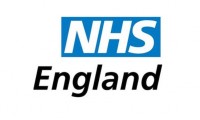-
NHS England to offer millions of children flu vaccines from September
- Source: drugdu
- 219
- August 16, 2023
-
NHS Extends Eligibility for Shingles Vaccine to Almost One Million People
- Source: drugdu
- 214
- July 15, 2023
-
Multi-cancer blood test shows real promise in NHS study
- Source: drugdu
- 122
- June 5, 2023
-
NHS misses targets in England to tackle care backlogs
- Source: drugdu
- 113
- May 15, 2023
-
Withdrawal of financial incentives for NHS GPs in Scotland linked to reductions in quality of care
- Source: drugdu
- 131
- April 24, 2023
-
maker of Wegovy ‘skinny jab’ is funding NHS weight-loss services
- Source: drugdu
- 161
- April 4, 2023
-
NHS-backed wellbeing app Thrive raises £2.5m
- Source: drugdu
- 212
- May 26, 2021
-
Four medicines accepted for use by NHS Scotland
- Source: drugdu
- 224
- April 14, 2021
-
NHS extends ‘COVID-friendly’ at-home cancer care
- Source: drugdu
- 164
- March 31, 2021
your submission has already been received.
OK
Subscribe
Please enter a valid Email address!
Submit
The most relevant industry news & insight will be sent to you every two weeks.













